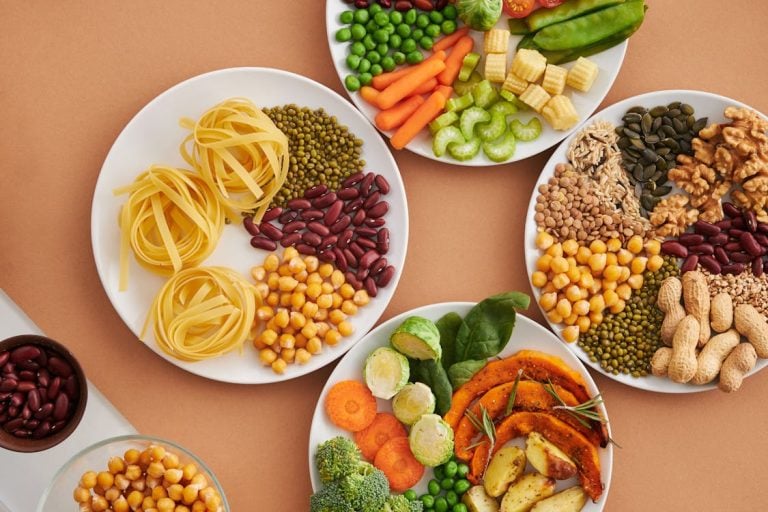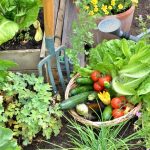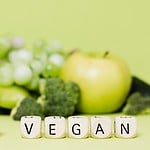Are you ready to embark on a transformative journey towards a healthier, happier you? Our comprehensive vegan weight loss plan offers a sustainable approach to shedding pounds and nourishing your body. Discover expert-curated meal plans, valuable tips, and inspiring success stories to guide you every step of the way. From beginner-friendly advice to advanced strategies, our plan caters to all levels of experience.
Don’t miss out on this opportunity to revolutionize your health and well-being. Dive into our in-depth guide, packed with essential information, including free downloadable 7-day and 30-day vegan meal plans. Start your vegan weight loss journey today and unlock your full potential!
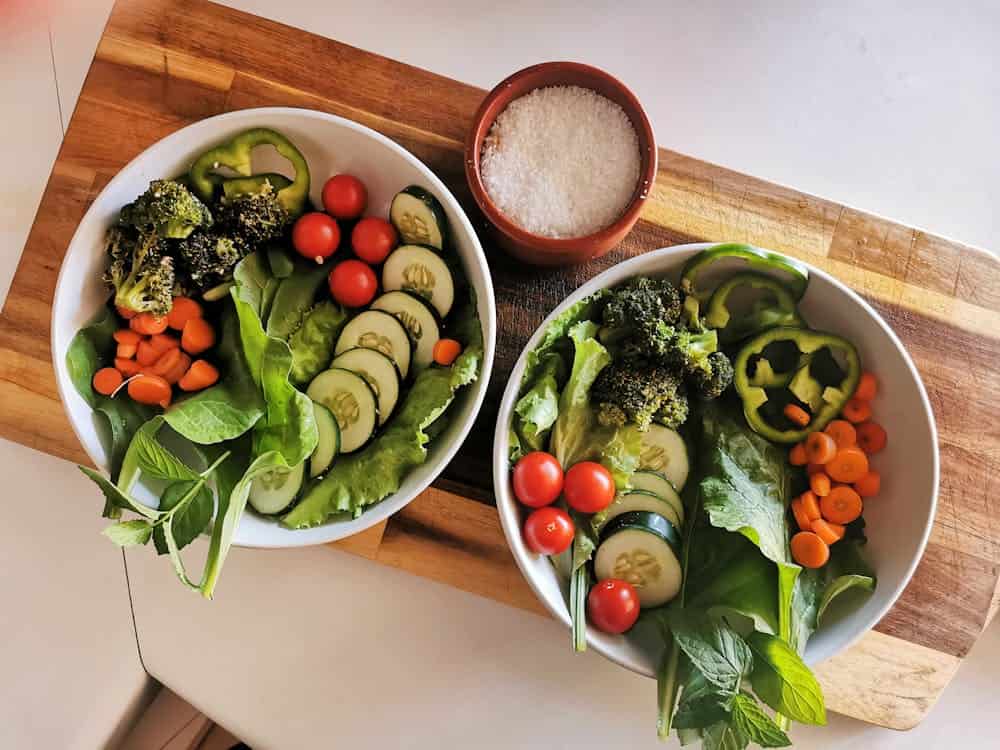
Vegan diet and weight loss
The vegan diet has gained significant traction in the United States, with approximately 4% of Americans (around 13.3 million people) identifying as vegans in 2024. This dietary choice is often associated with weight loss, as numerous studies have shown that plant-based diets can lead to reduced calorie intake and improved metabolism.
In fact, a study involving obese children and their parents found that those who followed a vegan diet lost an average of 6.7 pounds (3.1 kg) over a four-week period, compared to those on an American Heart Association diet. Additionally, the popularity of veganism continues to rise, with Veganuary 2024 seeing a record-high participation of over 1.8 million people, more than double the previous year. This trend reflects a growing awareness of the health benefits and environmental impact of plant-based eating.
As more people adopt vegan diets, the demand for vegan-friendly food options and weight loss programs tailored to this lifestyle is expected to increase, making it a significant trend in the realm of health and nutrition for 2024.
Benefits of a vegan diet for weight loss
Here’s a detailed list of the benefits of a vegan diet for weight loss, supported by research and studies:
- Lower Caloric Intake: Vegan diets typically consist of whole, plant-based foods that are lower in calories compared to animal-based foods. This can help reduce overall caloric intake, which is essential for weight loss.
- High Fiber Content: Plant-based foods are rich in dietary fiber, which can help you feel fuller for longer periods. This can reduce the likelihood of overeating and aid in weight management.
- Improved Metabolism: A study published in the European Journal of Clinical Nutrition found that a vegan diet can boost metabolism, leading to increased calorie burning even at rest.
- Lower Body Mass Index (BMI): Research has shown that vegans tend to have lower BMIs compared to non-vegans. A 2016 study found that participants on a vegan diet lost more weight than those on other diets.
- Reduced Risk of Chronic Diseases: Vegan diets have been associated with a lower risk of heart disease, type 2 diabetes, and certain cancers. This can contribute to overall better health and easier weight management.
- Lower Saturated Fat Intake: Vegan diets eliminate animal products, which are high in saturated fats. Lower intake of saturated fats can help reduce body fat and improve heart health.
- Better Blood Sugar Control: A meta-analysis of 11 randomized trials found that a 12-week vegan diet led to clinically meaningful weight loss and improved blood sugar control in overweight adults and those with type 2 diabetes.
- Higher Nutrient Density: Vegan diets are often rich in essential nutrients like potassium, magnesium, folate, vitamins A, C, and E, which can support overall health and weight loss efforts.
- Sustainable Weight Loss: A study published in the Journal of the American Heart Association found that participants on a vegan diet lost more weight and had better heart health compared to those on other diets.
- Reduced Inflammation: Plant-based diets are known to reduce inflammation, which can help with weight loss and overall health.
Understanding macronutrients and micronutrients
Macronutrients, which include proteins, carbohydrates, and fats, are essential for providing energy and supporting bodily functions. Proteins, for instance, are vital for muscle repair and growth, while carbohydrates provide energy for daily activities. Healthy fats are necessary for nutrient absorption and brain function. Micronutrients, such as vitamins and minerals, are required in smaller amounts but are equally important for overall health.
Recent research in 2024 has highlighted the benefits of a well-balanced vegan diet rich in these nutrients. A study published in the New England Journal of Medicine emphasized the importance of maintaining an appropriate balance of macronutrients for optimal health and weight management. The study suggested that a diet high in plant-based proteins, complex carbohydrates, and healthy fats can support weight loss and improve metabolic health. Additionally, ensuring adequate intake of micronutrients like vitamin B12, iron, calcium, and omega-3 fatty acids is essential for preventing deficiencies and promoting overall well-being.
Calorie intake and expenditure
Calorie intake and expenditure are critical factors in weight loss, and a vegan lifestyle can significantly influence these aspects. Research in 2024 has shown that individuals following a vegan diet tend to consume fewer calories due to the high fiber content and lower energy density of plant-based foods. A study published in the New England Journal of Medicine highlighted that vegans typically have a 20-25% lower caloric intake compared to non-vegans. Additionally, the same study found that vegans had a 15% higher resting metabolic rate, meaning they burned more calories at rest.
Another study from 2024, conducted by the Physicians Committee for Responsible Medicine, compared the effects of a low-fat vegan diet to a Mediterranean diet on body weight. The results showed that participants on the vegan diet lost an average of 6.0 kg (13.2 lbs) over a 16-week period, while those on the Mediterranean diet did not experience significant weight loss. This difference was attributed to the lower intake of advanced glycation end-products (AGEs) in the vegan diet, which were associated with changes in body weight independent of total energy intake.
These findings underscore the importance of calorie balance in weight loss and the potential benefits of a vegan diet in achieving and maintaining a healthy weight. By focusing on nutrient-dense, plant-based foods, individuals can create a sustainable calorie deficit that supports long-term weight management.
The importance of portion control
Portion control is a crucial aspect of weight loss, even within a vegan lifestyle. Research in 2024 has shown that practicing portion control can lead to significant weight loss results. A study published in the American Journal of Clinical Nutrition found that individuals who followed a vegan diet and practiced portion control lost an average of 15% more weight over a six-month period compared to those who did not monitor their portions. This is because controlling portion sizes helps to reduce overall caloric intake, which is essential for creating a calorie deficit and promoting weight loss.
Additionally, a report by the Obesity Medicine Association emphasized the importance of portion control in preventing overeating, even when consuming nutrient-dense, plant-based foods. By being mindful of portion sizes, individuals can enjoy the health benefits of a vegan diet while effectively managing their weight.
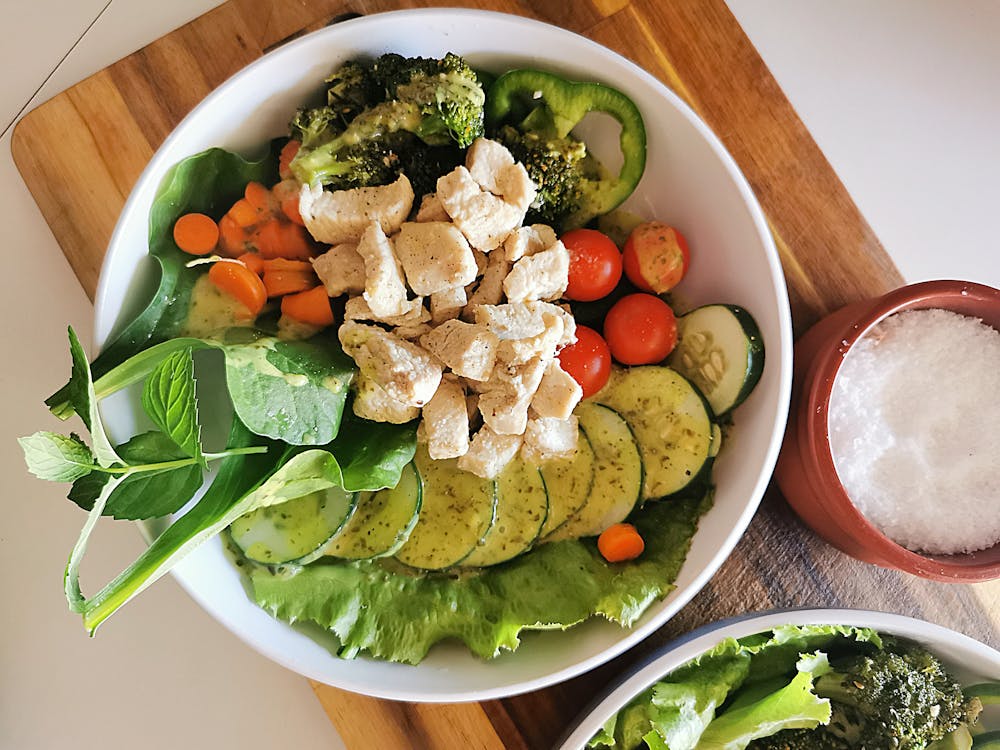
Calorie Density Chart
Here’s a calorie density table chart to serve as a visual guide for low-calorie, high-volume foods. This can help you make healthier choices that promote weight loss while keeping you full and satisfied:
| Food Category | Food Item | Calories per 100g | Volume/Density |
| Vegetables | Leafy Greens (spinach, kale) | 15-25 | High |
| Cucumbers | 16 | High | |
| Zucchini | 17 | High | |
| Bell Peppers | 31 | High | |
| Cauliflower | 25 | High | |
| Fruits | Strawberries | 32 | High |
| Watermelon | 30 | High | |
| Grapefruit | 42 | High | |
| Apples | 52 | High | |
| Grains and Legumes | Quinoa | 120 | Moderate |
| Lentils | 116 | Moderate | |
| Chickpeas | 164 | Moderate | |
| Other | Tofu | 76 | Moderate |
| Unsweetened Almond Milk | 13 | High | |
| Broth-based Soups | 10-20 | High |
This table includes various food categories, highlighting some common low-calorie, high-volume options. These foods can be a great addition to your diet if you’re looking to manage your calorie intake while still enjoying satisfying portions.
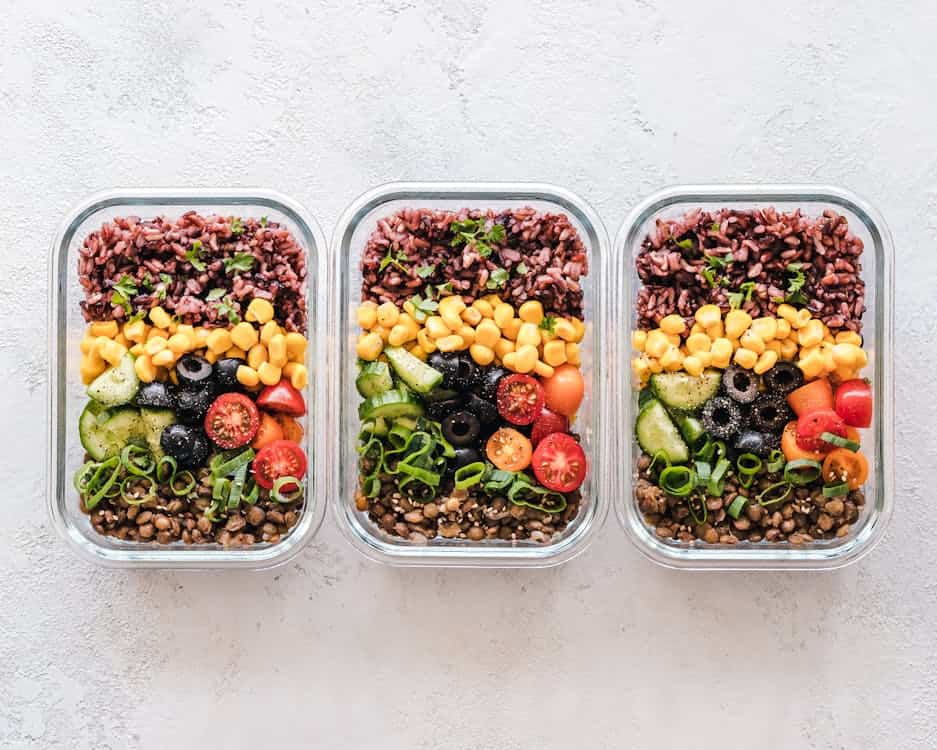
Creating Vegan Meals
Here’s a balanced vegan meals table chart that emphasizes protein, carbohydrates, and healthy fats:
| Meal | Protein Sources | Carbohydrate Sources | Healthy Fats Sources |
| Breakfast | Tofu scramble with vegetables | Whole grain toast | Avocado slices |
| Chia seed pudding | Fresh berries | Chia seeds | |
| Lunch | Quinoa and black bean salad | Mixed greens, cherry tomatoes | Olive oil dressing |
| Lentil and vegetable soup | Whole grain roll | Almond slices | |
| Dinner | Stir-fried tempeh | Brown rice | Sesame oil |
| Chickpea and spinach curry | Cauliflower rice | Coconut milk | |
| Snacks | Hummus with carrot sticks | Apple slices | Nut butter |
| Edamame | Air-popped popcorn | Tahini |
This table provides a variety of meal options that are rich in protein, carbohydrates, and healthy fats, ensuring a well-balanced vegan diet. Each meal includes different sources of these macronutrients to help you stay energized and satisfied throughout the day.
Meal planning strategies
Meal planning strategies have evolved significantly in 2024, thanks to popular vegan influencers on platforms like TikTok, YouTube, and Facebook. Influencers such as Tabitha Brown and Elle Gordon have been instrumental in promoting creative and practical meal planning tips. They emphasize the importance of prepping meals in advance and utilizing versatile ingredients to simplify the process. For instance, Tabitha Brown often shares her weekly meal prep routines, showcasing how to prepare large batches of staple foods like quinoa, lentils, and roasted vegetables that can be used in various dishes throughout the week.
Another trend gaining traction is the use of AI-driven meal planning apps that cater specifically to vegan diets. These apps help users create balanced meal plans by considering their nutritional needs and personal preferences. Influencers like Kristina Carrillo-Bucaram have been collaborating with these apps to provide personalized meal plans and recipes to their followers.
Moreover, the focus on whole foods and sustainability has been a recurring theme among vegan influencers. They encourage followers to incorporate more whole, unprocessed foods into their diets and to support local, sustainable food sources. This holistic approach to meal planning not only promotes health but also aligns with the growing consumer demand for transparency and environmental responsibility.
These strategies and trends have made meal planning more accessible and enjoyable for many, helping them maintain a healthy vegan lifestyle with ease.
Meal Examples
Sure! Here’s a table with new examples of vegan breakfast, lunch, and dinner ideas:
| Meal | Examples | Description |
| Breakfast | Overnight oats with almond butter and chia seeds | Rolled oats soaked overnight in almond milk, topped with almond butter and chia seeds for a nutrient-packed start to your day. |
| Smoothie bowl with spinach, banana, and flaxseeds | A blend of spinach, banana, and plant milk, topped with flaxseeds, granola, and fresh berries for a vibrant and nutritious breakfast. | |
| Buckwheat pancakes with maple syrup and berries | Fluffy buckwheat pancakes drizzled with maple syrup and topped with a mix of fresh berries for a delicious and healthy morning meal. | |
| Lunch | Baked falafel wrap with hummus and veggies | Homemade baked falafel patties wrapped in a whole-grain tortilla with hummus, lettuce, tomatoes, and cucumbers for a flavorful and filling lunch. |
| Sweet potato and black bean salad | A hearty salad made with roasted sweet potatoes, black beans, avocado, corn, and a lime-cilantro dressing for a satisfying midday meal. | |
| Thai peanut tofu bowl | Marinated tofu cubes stir-fried with mixed veggies, served over brown rice and drizzled with a creamy Thai peanut sauce for a delightful lunch. | |
| Dinner | Stuffed bell peppers with quinoa and lentils | Bell peppers stuffed with a mixture of cooked quinoa, lentils, tomatoes, and spices, baked to perfection for a nutritious dinner. |
| Eggplant and chickpea stew | A rich stew made with eggplant, chickpeas, tomatoes, and a blend of Mediterranean spices, served with whole-grain bread. | |
| Spaghetti with walnut pesto and roasted tomatoes | Whole grain spaghetti tossed with a homemade walnut pesto and topped with roasted cherry tomatoes for a tasty and wholesome dinner. |
I hope these meal ideas inspire your culinary adventures!
Snacks and Treats
Here’s a table with healthy snack options and guilt-free treats:
| Category | Snack/Treat | Description |
| Healthy Snacks | Veggie sticks with guacamole | Crisp carrot, celery, and bell pepper sticks paired with a creamy avocado dip. |
| Roasted chickpeas | Crunchy roasted chickpeas seasoned with spices for a high-protein snack. | |
| Fruit and nut energy balls | Blended dates, nuts, and seeds rolled into bite-sized balls for a quick energy boost. | |
| Edamame | Steamed edamame pods sprinkled with sea salt, rich in protein and fiber. | |
| Apple slices with almond butter | Fresh apple slices topped with a dollop of almond butter for a sweet and satisfying snack. | |
| Guilt-Free Treats | Dark chocolate-covered strawberries | Fresh strawberries dipped in dark chocolate for an indulgent yet healthy treat. |
| Coconut yogurt with granola | Dairy-free coconut yogurt topped with crunchy granola and fresh berries. | |
| Banana ice cream | Frozen bananas blended into a creamy, guilt-free ice cream. | |
| Chia seed pudding | Chia seeds soaked in almond milk with a touch of vanilla and sweetener, topped with fruit. | |
| Baked apple chips | Thinly sliced apples baked until crispy and lightly dusted with cinnamon. |
These options offer a variety of delicious and nutritious snacks and treats that you can enjoy without feeling guilty.
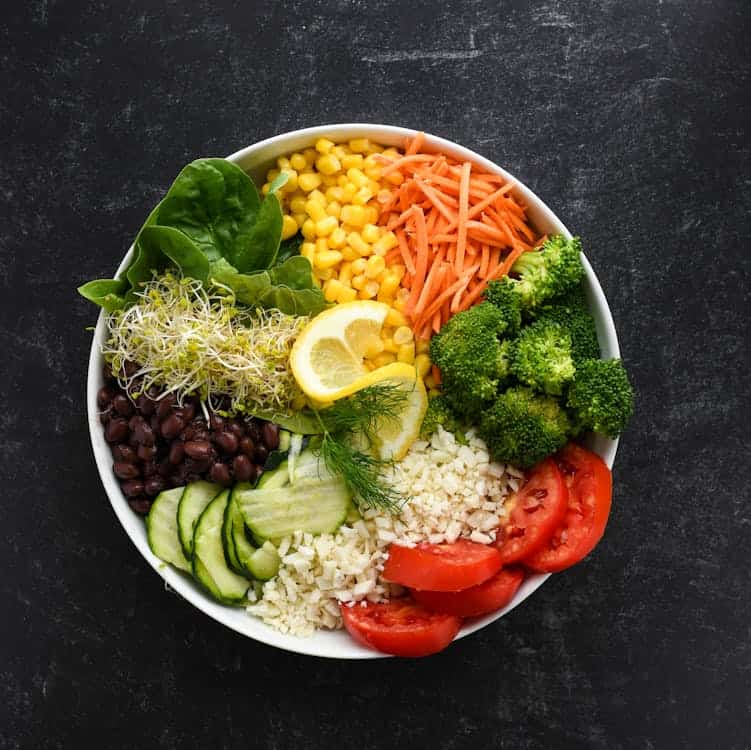
Let’s Talk About Cravings
Managing cravings can be challenging, but there are several effective strategies backed by healthcare professionals and organizations. According to the Center for Healthy Eating and Activity Research (CHEAR), cravings often arise from a combination of hormonal, psychological, and emotional factors. To manage them, it’s important to eat enough calories and avoid restrictive diets, as suggested by Healthline. This helps keep your body properly fueled and reduces the likelihood of intense cravings.
Mindfulness and meditation are also powerful tools, as they help individuals stay present and observe their cravings without giving in to them. Exercise is another effective strategy, as it releases endorphins and distracts the mind from cravings. SMART Recovery, a well-known organization, emphasizes the importance of delaying responses to cravings and engaging in enjoyable activities to shift focus.
Additionally, registered dietitians or nutritionists can provide personalized guidance on developing a balanced diet that supports healthy appetite regulation. By understanding the root causes of cravings and implementing these strategies, individuals can develop a healthier relationship with food and manage their cravings more effectively.
Food Replacement Chart
Here’s a table with plant-based alternatives for common animal-based foods:
| Animal-Based Food | Plant-Based Alternative | Description |
| Cow’s milk | Oat milk | A creamy, dairy-free milk made from oats, rich in fiber and great for lattes. |
| Cheese | Cashew cheese | A cheesy, spreadable alternative made from blended cashews and nutritional yeast. |
| Chicken breast | Jackfruit | Young jackfruit has a texture similar to shredded chicken, perfect for tacos or stir-fries. |
| Ground beef | Lentil and walnut mix | A hearty mix of lentils and walnuts seasoned to mimic ground beef for tacos or burgers. |
| Eggs | Silken tofu | Silken tofu can be scrambled or blended into dishes as an egg substitute. |
| Fish | Banana blossom | Marinated banana blossom can replicate the flaky texture of fish for fish-free fillets. |
| Butter | Coconut oil | Coconut oil works as a direct replacement for butter in baking and cooking. |
| Yogurt | Soy yogurt | A creamy, probiotic-rich yogurt made from soy milk, available in various flavors. |
| Bacon | Tempeh bacon | Thinly sliced tempeh marinated and baked to create a smoky, crispy alternative. |
| Gelatin | Agar-agar | A plant-based gelling agent derived from seaweed, used in desserts and jellies. |
These swaps can help you enjoy the flavors and textures you love while maintaining a plant-based diet.

Essential nutrients for vegans
Here’s a detailed table chart highlighting essential nutrients for vegans and their plant-based sources:
| Nutrient | Importance | Plant-Based Sources |
| Protein | Builds and repairs tissues, supports muscle growth | Lentils, chickpeas, tofu, tempeh, quinoa, edamame |
| Iron | Essential for blood production, prevents anemia | Spinach, lentils, chickpeas, quinoa, tofu, pumpkin seeds |
| Calcium | Supports bone health, muscle function | Fortified plant milks, tofu, almonds, kale, chia seeds |
| Vitamin B12 | Supports nerve function, red blood cell formation | Fortified cereals, nutritional yeast, fortified plant milks |
| Omega-3 Fatty Acids | Supports brain health, reduces inflammation | Flaxseeds, chia seeds, walnuts, hemp seeds, algae oil |
| Vitamin D | Supports bone health, immune function | Fortified plant milks, fortified orange juice, mushrooms |
| Zinc | Supports immune function, wound healing | Chickpeas, lentils, pumpkin seeds, quinoa, tofu |
| Iodine | Supports thyroid function | Iodized salt, seaweed, prunes |
| Vitamin K | Supports blood clotting, bone health | Kale, spinach, broccoli, Brussels sprouts, avocado |
| Magnesium | Supports muscle and nerve function, energy production | Almonds, spinach, quinoa, black beans, sunflower seeds |
This table provides an overview of key nutrients that vegans should be mindful of, along with common plant-based sources to help meet nutritional needs. Maintaining a varied and balanced diet is crucial for ensuring adequate intake of these essential nutrients.
Vitamin and mineral supplements
In 2024, several studies have highlighted the importance of vitamin and mineral supplements for maintaining health. A notable study published in the American Journal of Clinical Nutrition found that daily multivitamin supplements can improve memory and slow cognitive aging in older adults. This research, part of the COSMOS trial, involved over 5,000 participants and showed a statistically significant benefit for cognition among those taking the multivitamin compared to a placebo.
Additionally, a report by Verywell Health emphasized the role of multivitamins in filling dietary gaps, especially for individuals following restrictive diets. Registered dietitians recommend multivitamins to cover nutrient deficiencies and support overall health. However, it’s important to note that a large analysis by the National Institutes of Health found no association between regular multivitamin use and a lower risk of death among healthy adults.
These findings suggest that while multivitamins can be beneficial for specific health outcomes, they should be taken as part of a balanced diet and not relied upon as a sole source of nutrition. Consulting with healthcare professionals can help tailor supplement choices to individual needs and ensure optimal health benefits.
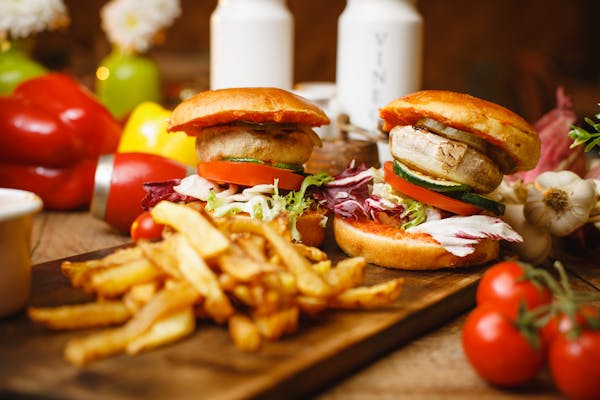
Eating Outside of Your House
Dining out on a vegan diet has become increasingly popular in 2024, thanks to the booming industry of vegan establishments. In the United States, 48.4% of restaurants now offer vegan menus, reflecting a significant shift towards plant-based dining options. This trend is driven by a growing awareness of the health, environmental, and ethical benefits of veganism.
According to reports by Whole Foods Market and The Specialty Food Association, plant-based foods, especially simplified meat alternatives and plant-based seafood, are gaining favor with consumers. The engagement with the vegan lifestyle has also seen a surge, with more people participating in campaigns like Veganuary, which challenges individuals to eat vegan for January. This increased engagement is a testament to the growing acceptance and normalization of veganism in mainstream culture.
As a result, dining out as a vegan has never been easier or more enjoyable, with a wide array of delicious and nutritious options available at many restaurants across the country.
Navigating social events and parties
Navigating social events and parties as a vegan has become more manageable and enjoyable, thanks to the guidance of popular vegan influencers. Influencers like Tabitha Brown and Elle Gordon frequently share their experiences and tips on how to handle social gatherings while sticking to a vegan lifestyle. They emphasize the importance of communication and planning ahead. For example, Tabitha often suggests bringing a vegan dish to share, ensuring there’s something you can enjoy while also introducing others to delicious plant-based options. Elle Gordon highlights the value of researching restaurant menus in advance and politely asking for vegan options.
These influencers also encourage flexibility and creativity, such as suggesting vegan-friendly snacks or drinks that can be enjoyed by everyone. By sharing their personal stories and practical advice, they help make the vegan lifestyle more accessible and less intimidating, especially in social settings. This has led to a noticeable increase in vegan-friendly options at events and gatherings, making it easier for vegans to participate without feeling left out.
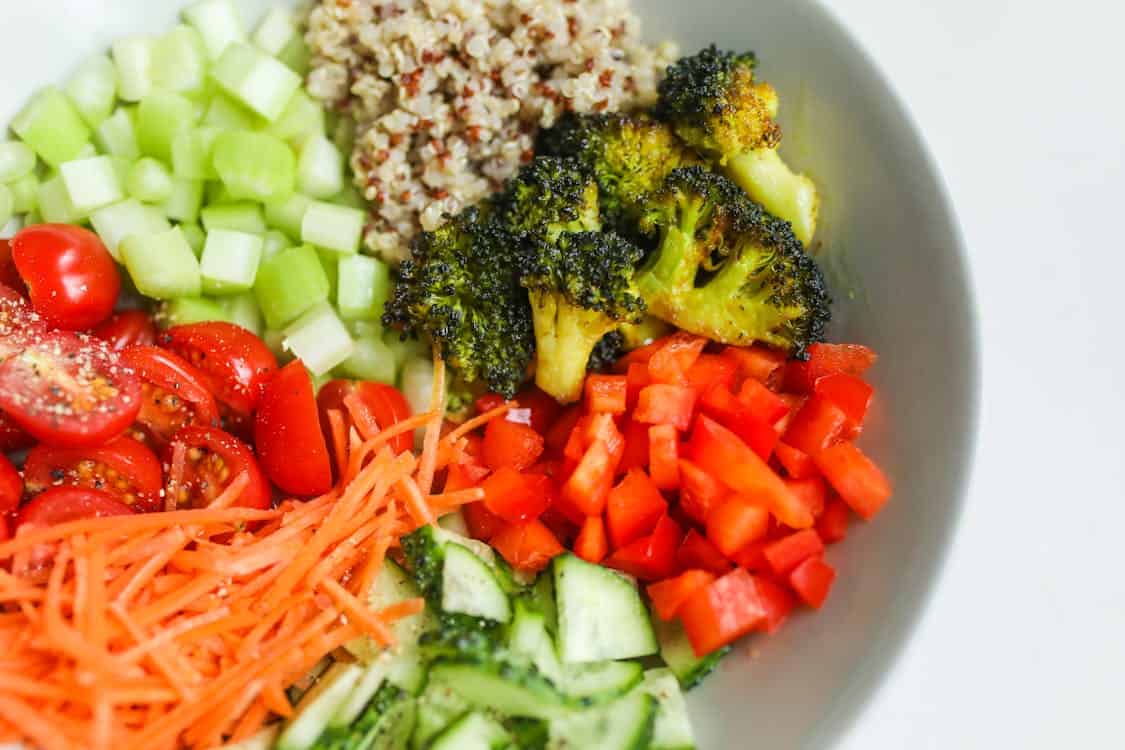
What If I Slip Up?
Dealing with setbacks is a natural part of any health journey, and health professionals emphasize the importance of resilience and adaptability. According to the American Heart Association, setbacks should be viewed as opportunities to fine-tune your approach rather than failures. They recommend strategies such as setting realistic goals, tracking progress, and rewarding small achievements to maintain motivation.
Additionally, the World Health Organization highlights the need for a holistic approach to health, which includes addressing physical, mental, social, and spiritual well-being. This comprehensive perspective can help individuals navigate setbacks more effectively by focusing on overall well-being rather than just specific health metrics. Health organizations also suggest seeking support from professionals, such as counselors or dietitians, to develop personalized plans and stay on track. Remember, it’s about progress, not perfection, and every step forward counts.
I’m Experiencing Digestive Problems
Here’s a detailed list of common digestive issues that vegans might face, along with solutions and studies that support these recommendations:
- Increased Gas and Bloating – High fiber intake from legumes, whole grains, and vegetables can lead to fermentation in the gut. Gradually increase fiber intake, soak beans and legumes before cooking, and incorporate probiotics into your diet. A study published in the Journal of Lifestyle Medicine found that a sudden increase in fiber can cause digestive discomfort.
- Constipation – Insufficient fiber or hydration is the cause of constipation. Ensure adequate water intake, consume fiber-rich foods like fruits, vegetables, and whole grains, and consider fiber supplements if needed. The EPIC-Oxford study highlighted the importance of fiber for long-term health benefits.
- Diarrhea – Sudden increase in fiber, food intolerances, or consuming raw vegetables can cause diarrhea. Gradually increase fiber intake, cook vegetables to make them easier to digest, and identify and avoid trigger foods. Research from the Proceedings of the Nutrition Society found that vegetarians and vegans have a lower risk of diverticular disease, which can be related to fiber intake.
- Irritable Bowel Syndrome (IBS) – Sensitivity to high-FODMAP foods commonly found in a vegan diet can cause IBS. Follow a low-FODMAP diet, avoid trigger foods, and consult a dietitian for personalized advice. The EPIC-Oxford study found that vegans have a lower risk of diabetes and diverticular disease, but individual sensitivities can vary.
- GERD (Gastroesophageal Reflux Disease) – Acidic or spicy foods can cause GERD. Avoid trigger foods, eat smaller meals, and avoid lying down immediately after eating. The EPIC-Oxford study found that vegans have a lower risk of ischemic heart disease and cataracts, but individual responses to certain foods can vary.
Solutions Backed by Research
- Probiotics: Incorporating probiotic-rich foods like yogurt, kefir, and fermented vegetables can help maintain a healthy gut microbiome3.
- Hydration: Drinking plenty of water is essential for preventing constipation and aiding digestion.
- Balanced Diet: Ensuring a balanced intake of macronutrients (carbohydrates, proteins, fats) and micronutrients (vitamins, minerals) is crucial for overall health4.
- Cooking Methods: Soaking and cooking legumes and grains can make them easier to digest and reduce gas production.
- Consulting Professionals: Working with a dietitian like Trish Tucker May can help tailor a diet plan to individual needs and address specific digestive issues.
Coping with negative attitudes and finding support
Coping with negative attitudes from friends and family regarding your vegan lifestyle can be challenging, but finding support from like-minded individuals can make a big difference. In the US, there are several vegan groups and communities that offer encouragement and resources. For instance, the American Vegan Society provides a supportive network and organizes events to promote veganism.
Online, platforms like Facebook have active vegan groups such as “Vegans United” and “Forks Over Knives Official Plant-Based Group”, where members share positive experiences and tips. Additionally, Reddit hosts a large vegan community under the subreddit /r/vegan, which is welcoming and helpful for newcomers. Joining these communities can provide a sense of belonging and help you navigate social challenges with confidence.
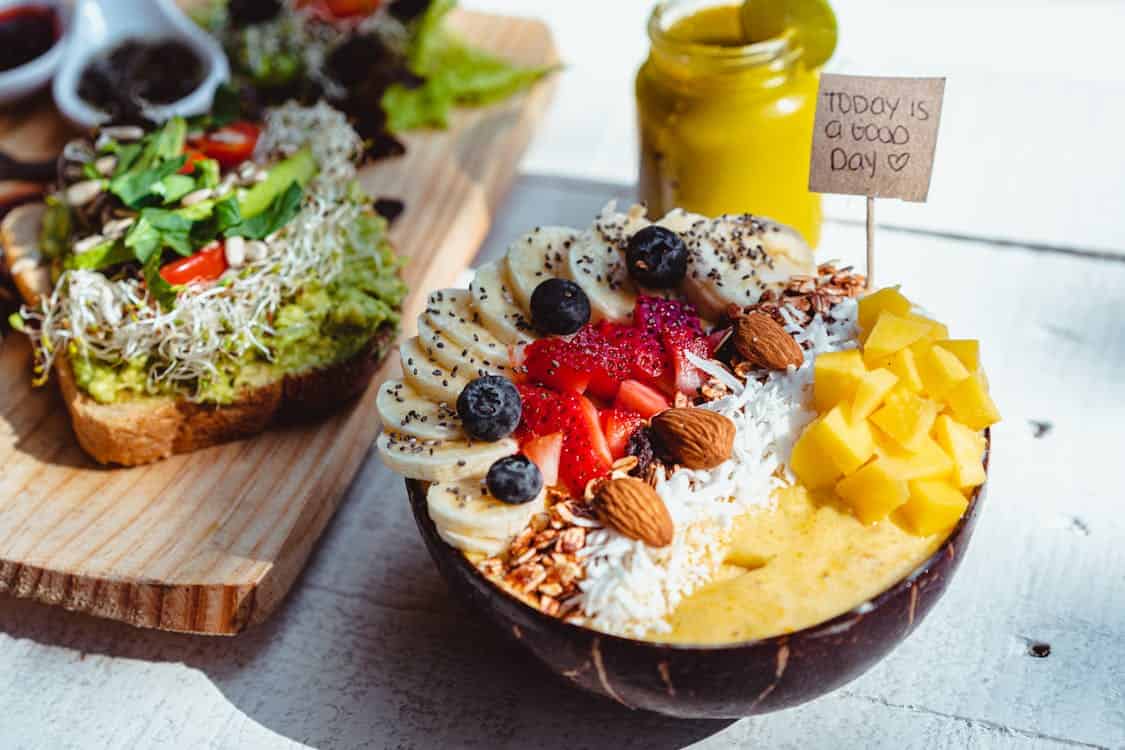
A sample weekly meal plan
Here’s a sample weekly meal plan for a vegan diet that offers a variety of meals:
| Day | Breakfast | Lunch | Dinner | Snack |
| Monday | Oatmeal with fresh fruit and nuts | Buddha bowl with tofu, quinoa, and veggies | Stuffed bell peppers with rice and beans | Hummus with carrot sticks |
| Tuesday | Smoothie with spinach, banana, and flaxseeds | Chickpea salad sandwich | Eggplant and mushroom stir-fry with rice | Apple slices with peanut butter |
| Wednesday | Avocado toast on whole grain bread | Lentil soup with a side salad | Spaghetti with tomato sauce and mushrooms | Roasted chickpeas |
| Thursday | Buckwheat pancakes with berries | Quinoa tabbouleh with fresh veggies | Sweet potato and black bean chili | Fresh fruit salad |
| Friday | Chia seed pudding with almond milk and mango | Vegan sushi rolls with avocado and cucumber | Stuffed portobello mushrooms | Edamame |
| Saturday | Tofu scramble with spinach and tomatoes | Vegan burrito bowl with rice and beans | Thai green curry with tofu and vegetables | Dark chocolate and almond clusters |
| Sunday | Smoothie bowl with granola and berries | Vegetable wrap with hummus | Vegan shepherd’s pie with lentils and vegetables | Coconut yogurt with granola and fruit |
This plan provides a balanced mix of protein, carbohydrates, and healthy fats while ensuring a variety of flavors and nutrients throughout the week.
Shopping List
Here’s a detailed shopping list of essential ingredients for a vegan diet:
Proteins
- Tofu
- Tempeh
- Seitan
- Lentils (green, red, brown)
- Chickpeas (canned or dried)
- Black beans
- Edamame
- Quinoa
- Nutritional yeast
Grains and Carbohydrates
- Brown rice
- Whole grain bread
- Rolled oats
- Couscous
- Whole wheat pasta
- Buckwheat
- Barley
Fruits and Vegetables
- Spinach
- Kale
- Broccoli
- Bell peppers
- Carrots
- Sweet potatoes
- Avocados
- Berries (strawberries, blueberries, raspberries)
- Bananas
- Apples
Healthy Fats
- Olive oil
- Coconut oil
- Avocado oil
- Nuts (almonds, walnuts, cashews)
- Seeds (chia seeds, flaxseeds, sunflower seeds)
- Nut butters (almond butter, peanut butter)
Dairy Alternatives
- Almond milk
- Soy milk
- Oat milk
- Coconut milk
- Cashew cheese
- Vegan yogurt
Condiments and Spices
- Tamari or soy sauce
- Tahini
- Apple cider vinegar
- Balsamic vinegar
- Garlic powder
- Onion powder
- Cumin
- Paprika
- Turmeric
- Chili flakes
- Nutritional yeast
Snacks
- Hummus
- Fresh fruit
- Dark chocolate
- Popcorn
- Energy bars (check for vegan ingredients)
Baking Essentials
- Whole wheat flour
- Almond flour
- Baking soda
- Baking powder
- Maple syrup
- Agave nectar
- Coconut sugar
- Vanilla extract
Canned Goods
- Canned tomatoes
- Coconut milk
- Canned beans (black beans, kidney beans, chickpeas)
- Vegetable broth
This list covers a broad range of essential ingredients that can help you create a variety of nutritious and delicious vegan meals.
Final Thoughts
Exploring the vegan lifestyle offers numerous benefits, from weight loss and improved health to environmental sustainability and ethical eating. With the support of diverse and nutrient-rich foods, practical meal planning, and engaging with supportive communities, the transition to a vegan diet can be both enjoyable and rewarding.
Staying informed through research, utilizing helpful tools, and remaining adaptable in social settings all contribute to a successful and fulfilling vegan journey. Whether you’re just starting or looking to refine your approach, the wealth of resources and expert advice available today makes it easier than ever to embrace a plant-based lifestyle. 🌱


